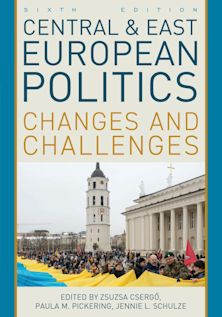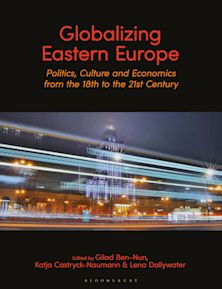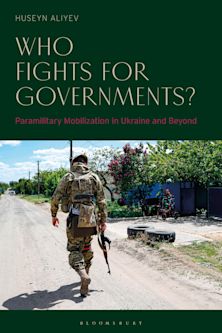COVID-19, Public Management, and Survival of East European Democracies
COVID-19, Public Management, and Survival of East European Democracies
This product is usually dispatched within 1 week
- Delivery and returns info
-
Free CA delivery on orders $40 or over
Description
COVID-19, Public Management, and Survival of East European Democracies centers initially on the development of democracy in fourteen states of Eastern Europe, with an emphasis on the distinction between the seven Baltic and East Central European states in the north and the seven Balkan states in the south. Examination of key events of the political history of the two regions reveals that a participant political culture as the anchor of democracy was more developed in the north than in the south. Important measures of democracy as well as election results during the 2020-22 period of the COVID-19 outbreak demonstrate and reinforce the same distinctions between the two regions. Further, this detailed study of public administration problems such as corruption, accountability, trust, and the number of deaths from COVID-19 also disclose that such problems characterized both regions but were more pronounced in the southern states. In addition, the rise of populism and authoritarianism injected severe challenges in the midst of administrative preoccupation with the many harmful effects of the virus.
Table of Contents
Chapter One: Democratic Values and Public Administration in Eastern Europe
Chapter Two: American Democratic Beliefs and Their Historic Impact on Eastern Europe
Chapter Three: Public Management and Democratic Practices in the Political History of Eastern Europe, 1945-2020
Chapter Four: Democracy Distinctions Between North (Baltics and East Central Europe) and South (Balkan) Regions of Eastern Europe
Chapter Five: Decline of Democracy and the Rise of Authoritarianism and Populism
Chapter Six: Rise of Populism and Electoral Autocracies
Chapter Seven: Measures Of Democracy and Election Results in Eastern Europe During the Covid-19 Era, 2020-2022
Chapter Eight: Regional Impact of Covid-19 and a Case Study of the Baltic States
Chapter Nine: A Case Study of Covid-19 in East Central Europe: The Visegrád Four
Chapter Ten: A Case Study Of Covid-19 in the Balkan States
Chapter Eleven: Covid-19 and the Corruption Crisis
Chapter Twelve: Citizen Compliance Challenged by Accountability and Trust
Chapter Thirteen: Policy Implementation and Excess Covid-19 Deaths
Chapter Fourteen: Eastern European Public Management of the Covid-19 Crisis and Its Impact on Their Democratic Traditions and Values
Addendum
Appendix
References
Index
About the Authors
Product details
| Published | Apr 16 2024 |
|---|---|
| Format | Hardback |
| Edition | 1st |
| Extent | 176 |
| ISBN | 9781666925166 |
| Imprint | Lexington Books |
| Illustrations | 15 Tables |
| Dimensions | 236 x 161 mm |
| Publisher | Bloomsbury Publishing |
Reviews

ONLINE RESOURCES
Bloomsbury Collections
This book is available on Bloomsbury Collections where your library has access.


































